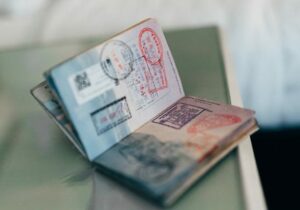“The Transformation of Citizenship” report from the Global Intelligence Unit has shown that dual citizenship is growing in popularity worldwide, with over 76% of countries now recognizing multiple nationalities, in comparison to only 33% in 1960.
Countries now see how flexible citizenship can benefit both the destination country through bringing in new talent, investment and innovation while home countries benefit from remittances and knowledge transfer.
There are two sides to every coin, and while dual citizenship is growing worldwide and praised for its benefits, it also has a few downfalls.
As a reputable consultancy that aids its clients in getting the best options to citizenship by investment, Global Citizen Solutions understands the importance of being transparent about both the pros and cons of dual citizenship.
In this guide, we will explain the difference between dual citizenship and a second passport and provide a list of the pros and cons of obtaining an additional passport. This is more of what we will cover:
What is dual citizenship?
Dual citizenship allows an individual to be a citizen of two countries at the same time. This status can be obtained through birth, descent, marriage, or residency programs like citizenship by investment. Multiple countries provide tax benefits for dual citizens, such as exemptions on foreign income or reduced tax rates, making it an appealing option for those looking to optimize their tax situation.
Dual citizens enjoy the rights of both countries, including the ability to live, work, and travel freely, along with access to healthcare, education, and social services. However, they must also meet obligations like taxation and potentially military service. While some countries allow dual citizenship, others may require renouncing one nationality. The rules vary by country, so it’s crucial to understand the legal and tax implications before seeking to obtain citizenship in multiple countries.
Dual citizenship vs second passport
Now that we have explained dual citizenship, we can establish the difference between that legal status and a second passport. A second passport is a travel document that signifies citizenship in the country that issued it. Having a second passport means holding this document from another nation through dual citizenship or residency.
Advantages of Dual Citizenship
Dual citizenship has many advantages, like increased travel freedom, access to two countries’ rights and benefits, and expanded economic opportunities. It provides greater flexibility and security for individuals and their families.
 1. Expanded travel
1. Expanded travel
The main advantage of dual citizenship is the second passport, which allows for visa-free travel to more countries or easier visa-on-arrival access. For example, a U.S. citizen with a Grenada passport can enter New Zealand and Japan without a visa, while the Grenada passport offers visa-free access to China. Dual passport holders can use the benefits of both passports for more convenient international travel.
 2. Business opportunities
2. Business opportunities
Multiple citizenship allows individuals to conduct business activities across several countries, allowing them to select the nation that aligns best with their financial objectives or offers a more favorable environment for investments and business operations. This can include economic stability, a lenient taxation system, and governmental support for new enterprises.
 3. Civil liberties
3. Civil liberties
Civil liberties are basic rights and freedoms that governments protect through laws or constitutions. Dual citizens benefit from these rights in both countries, such as voting in elections, engaging in politics, and entering either country freely without special permits. While permanent residents can live in a country long-term, dual citizens often have additional privileges. For instance, in some countries, only citizens can own property without restrictions, offering greater security and opportunities.
 4. Healthcare options
4. Healthcare options
A dual citizen has access to two healthcare systems and can choose the most advanced or specialized system for their needs. For instance, a US citizen who has US dual citizenship with Ireland can take advantage of Ireland’s free healthcare system instead of paying for comprehensive medical coverage in the United States.
 5. Higher education
5. Higher education
Dual citizens and their families have two advantages regarding higher education: Citizenship in two countries expands the options for universities and other types of advanced education, such as apprenticeships and special learning programs. Additionally, studying in a foreign country as a foreign national includes higher tuition. Dual citizens pay the lowest tuition fees for education and can access national grants and funding schemes.
 6. Reducing taxes
6. Reducing taxes
Dual citizenship can provide tax benefits, especially in countries with low or no income tax, like the UAE, Vanuatu, and St. Kitts and Nevis. These countries may also exempt overseas income from tax. Expats can reduce taxes by becoming residents in these tax-friendly countries. Residency is usually based on the number of days spent in the country, and some offer exemptions or low tax rates for those living abroad. This allows people to benefit from lower taxes while keeping ties to their home country.
 7. Security and stability
7. Security and stability
Dual citizenship offers access to more resources, legal protections, and diplomatic support, enhancing safety and well-being. It provides consular assistance from both countries, ensuring help in emergencies, legal issues, or facing discrimination abroad. This extra security allows dual citizens to navigate uncertain situations with more confidence, knowing they have support from multiple sources.
Disadvantages of Dual Citizenship
Dual citizenship offers a range of benefits, including the ability to travel freely, work in two countries, and access social services and property ownership opportunities. However, it also comes with challenges, such as the potential for double taxation, military obligations, and restrictions on certain jobs. These are some of the downfalls:
1. Tax burden
Weighing the benefits of dual citizenship, the risk of double taxation is on the other side of the opportunity to reduce taxes for dual citizens. Without a double taxation agreement, dual citizens will owe taxes to two jurisdictions, leading to potential financial complexities from overlapping tax obligations. Citizenship-based taxation, where a country taxes its citizens regardless of residency status, is usually surrounded by double taxation concerns.
2. Career restrictions
While dual citizens have more employment opportunities, they may not be eligible to take up specific jobs and positions in government. In some cases, holding dual citizenship can affect your ability to engage in political activities in one or both of your countries. Some nations prevent dual citizens from government roles or positions like judges, ministers, or deputies.
3. Military obligation
Most countries that formally recognize dual citizenship don’t impose mandatory military service on their citizens; however, plenty of countries have established compulsory national service once citizens reach the age of maturity.
A dual citizen holding two citizenships in countries with mandatory military service may encounter complications regarding their obligations to both countries of citizenship. This can be further complicated when one country doesn’t allow you to serve in a foreign military.
4. Legal complexity
Dual citizenship can lead to legal complexities, especially if the two countries have different laws regarding citizenship and other obligations. In some situations, the laws of one country may conflict with the laws of the other. This can create confusion or legal challenges, particularly in areas like taxation, military service, and immigration.
5. Immigration procedures
If you decide to move permanently to one of your countries of citizenship, the immigration process can be more complex for dual citizens. This can involve renouncing one of your citizenships. Some countries may also have restrictions on dual citizens entering or leaving their home country. For example, a dual citizen might need to use a specific passport to enter or leave a particular country.
6. Cultural considerations and government assistance
Having dual citizenship may also raise questions about cultural identity and where you feel most connected. This can be a personal challenge for some individuals, especially when the two countries are at odds with each other. In certain countries, dual citizens may not be eligible for the same level of government assistance as single citizens, such as certain social benefits or subsidies. Even if the countries allow dual citizenship, the diplomatic ties could complicate the matter.
How to Get Dual Citizenship
Citizenship by birthright
The most common route to dual nationality is birth citizenship. This is when children are automatically granted citizenship in two countries at birth based on their respective immigration laws.
Birthright citizenship is typically determined by jus soli (based on the place of birth) or jus sanguinis (based on blood relatives).
A child born to a foreign-citizen parent may acquire citizenship from their birth country and the other citizenship from their parent. Although this may seem straightforward, some countries with birthright citizenship have a few conditions.
Citizenship by descent
Although typically considered birthright citizenship, those who receive citizenship by birthright generally do so by submitting a citizenship application after birth. Citizenship by descent involves proving one’s ties to a country through one’s family history in a direct line. In many countries, like Bulgaria, Finland, Poland, and Italy, family members include grandparents and great-grandparents.
Citizenship by naturalization
The citizenship by naturalization process is the primary way foreign nationals gain citizenship in other countries they have no familial ties. The eligibility requirements generally involve living in the country for a minimum period and can include proving language proficiency and knowledge of the country’s history and customs.
Citizenship by marriage
Citizenship by marriage is another common and easy route to dual nationality. Marriage to a citizen often excludes the requirements for typical naturalization, such as the length of residence, language proficiency, and merits based on other point-scoring factors like paid taxes and employment.
Citizenship by investment
Citizenship by investment (CBI) is a legal pathway allowing foreigners to acquire dual citizenship in a foreign country by contributing to its economy or image. This form of migration has become increasingly popular for those seeking dual citizenship. Economic citizenship involves making qualifying investments like real estate, government bonds, or businesses based on a country’s requirements. Once the criteria are met and due diligence checks are cleared, applicants and their families can obtain citizenship and second passports, granting them the benefits of dual citizenship.
Citizenship by Investment Countries
Citizenship by investment is one the easiest and most streamlined ways of obtaining a second passport. These are some of the best countries offering citizenship through investment with some of the shortest processing times.
Country | Minimum Investment | Residency Requirement | Time to Citizenship |
Turkey | €400,000 | none | 3-6 months |
Malta | €690,000 | None (but maintain investment) | 12 to 36 months |
St. Kitts and Nevis | €250,000 | None (investment must be maintained) | 4-6 months |
Antigua and Barbuda | €230,000 | 5 days | 6 months |
Dominica | €200,000 | None (investment must be maintained) | 6-9 months |
Vanuatu | $130,000 | None (investment must be maintained) | 60 days |
Grenada | €235,000 | None (investment must be maintained) | 9 months |
Saint Lucia | $240,000 | None (investment must be maintained) | 10-12 months |
How do you maintain Dual Citizenship?
Can Americans obtain dual citizenship?
Yes, according to the U.S. Department of State, Americans can become dual citizens through various pathways, including citizenship by descent, marriage, or naturalization in another country. While the U.S. allows dual citizenship, it does not actively encourage it, and U.S. citizens are still required to fulfill their obligations, like filing taxes, regardless of holding another nationality.
For those looking for permanent residency or citizenship abroad, it’s important to understand the necessary forms for residency, naturalization, or investment programs. For example, U.S. citizens applying for residency in countries like Canada or through EU residency programs must complete forms like visa applications and residency requests. If gaining citizenship through naturalization in another country, U.S. citizens must comply with U.S. laws, including tax implications, and may need to submit forms like IRS Form 8854 if renouncing U.S. citizenship.
Key Takeaways about Dual Citizenship
Dual citizenship is a powerful tool for enhancing global mobility, security, and opportunities, allowing access to multiple passports that can significantly improve your quality of life. It provides benefits like visa-free travel, economic flexibility, and the ability to live, work, or study in more than one country. There are several tools to help people find the most powerful passports, like the Global Citizen Solutions Global Passport Index. However, it’s important to weigh the potential downsides like double taxation, military service obligations, or political conflicts.
- Pros: Dual citizenship provides security, flexibility in residence, and enhanced access to education, healthcare, and financial systems.
- Cons: It may require fulfilling tax and legal duties in both countries and can complicate international legal matters.
- Paths: Methods to dual citizenship include ancestry, marriage, naturalization, or investment programs in countries like Malta or St. Kitts & Nevis.
- Dual Citizenship vs. Second Passport: Dual citizenship ensures full rights; second passports focus on travel convenience.
How Can Global Citizen Solutions Help You?
Global Citizen Solutions is a boutique migration consultancy firm with years of experience delivering bespoke residence and citizenship by investment solutions for international families. With offices worldwide and an experienced, hands-on team, we have helped hundreds of clients worldwide acquire citizenship, residence visas, or homes while diversifying their portfolios with robust investments.
We guide you from start to finish, taking you beyond your citizenship or residency by investment application.

Frequently Asked Questions About the Pros and Cons of Dual Citizenship
Does dual citizenship mean more taxes?
Downsides to holding dual citizenship include the risk of double taxation, the lengthy and costly procedures involved in acquiring dual citizenship, and the legal obligations imposed by two separate nations.
Whether or not dual citizenship means more taxes depends on the tax laws of the countries of citizenship and whether or not both countries have a double taxation agreement.
Do countries disallow dual citizenship?
A primary concern for governments with reservations about their citizens pursuing dual citizenship is the potential conflict of loyalty that dual citizens might face when having ties to multiple nations.
Governments worry that individuals with dual citizenship may prioritize the other nation’s interests over their own, especially during times of national crisis or conflict. Additionally, dual citizenship may create complexities in enforcing laws and regulations, as individuals may take advantage of differing legal systems to evade responsibilities or legal consequences.
Can I lose my dual citizenship?
Whether or not you can lose your citizenship after you obtain second citizenship depends on your home country’s laws around alternative citizenship. If you are a national of a country that does not allow dual citizenship, you may be forced to renounce your new citizenship or risk losing your current citizenship.
Can I pass on dual citizenship?
Concerning the good and bad of dual citizenship, one advantage is that in many countries, you can pass citizenship on to your children through citizenship by descent. For instance, a child is eligible for an Australian passport through Australian-citizen parents, while a child can receive citizenship from their parents and grandparents in Mexico.
Can you have triple citizenship?
Yes, it is possible to hold three citizenships if the laws of your country of residence and other countries involved allow multiple passports.
What are the benefits of multiple citizenships?
Dual citizens enjoy benefits like the opportunity to live and work freely in two countries, own property in both countries and travel between the countries with relative ease.
Are there reasons why dual citizenship is bad?
Yes, potential downsides of dual citizenship can include complexities in taxation, military service obligations, and conflicts between the laws of the two countries
Why does the US not encourage dual citizenship?
The United States does not explicitly encourage multiple citizenship primarily because it can create complexities in matters such as taxation, military service obligations, and conflicting allegiances. Additionally, the U.S. historically emphasized a strong sense of national identity and loyalty to the country.

 Artur Saraiva
Artur Saraiva 


